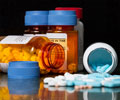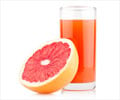J. Nutr. Biochem.
Cow's milk polar lipids reduce atherogenic lipoprotein cholesterol, modulate gut microbiota and attenuate atherosclerosis development in LDL-receptor knockout mice fed a Western-type diet.
Millar CL, Jiang C, Norris GH, Garcia C, Seibel S, Anto L, Lee JY, Blesso CN
Milk sphingomyelin (SM), a polar lipid (PL) component of milk fat globule membranes, is protective against dyslipidemia. However, it is unclear whethe ...
Read More
Source: PubMed
Clin Nutr 2019 Dec 14
Association between dietary patterns and adult depression symptoms based on principal component analysis, reduced-rank regression and partial least-squares.
Shakya PR, Melaku YA, Page A, Gill TK
There have been inconsistent findings on the association between dietary patterns and depressive symptoms (DepS). In addition, studies have used singl ...
Read More
Source: PubMed
Appl. Environ. Microbiol. 2020 Jan 31
Lysis of an Lactococcus lactis Di-peptidase Mutant and Rescue by Mutation in the Pleiotropic Regulator CodY.
Huang C, Hernandez-Valdes JA, Kuipers OP, Kok J
Lactococcus lactis subsp. cremoris MG1363 is a model for the lactic acid bacteria (LAB) used in the dairy industry. The proteolytic system, consisting ...
Read More
Source: PubMed
Appl. Environ. Microbiol. 2020 Jan 31
Competitive exclusion is a major bioprotective mechanism of lactobacilli against fungal spoilage in fermented milk products.
Siedler S, Rau MH, Bidstrup S, Vento JM, Aunsbjerg SD, Bosma EF, McNair LM, Beisel CL, Neves AR
A prominent feature of lactic acid bacteria (LAB) is their ability to inhibit growth of spoilage organisms in food, but hitherto research efforts to e ...
Read More
Source: PubMed
J. Hazard. Mater.
Effects of mycotoxin-contaminated feed on farm animals.
Yang C, Song G, Lim W
Mycotoxins are secondary products produced by fungi in cereals and are frequently found in the livestock industry as contaminants of farm animal feed. ...
Read More
Source: PubMed







